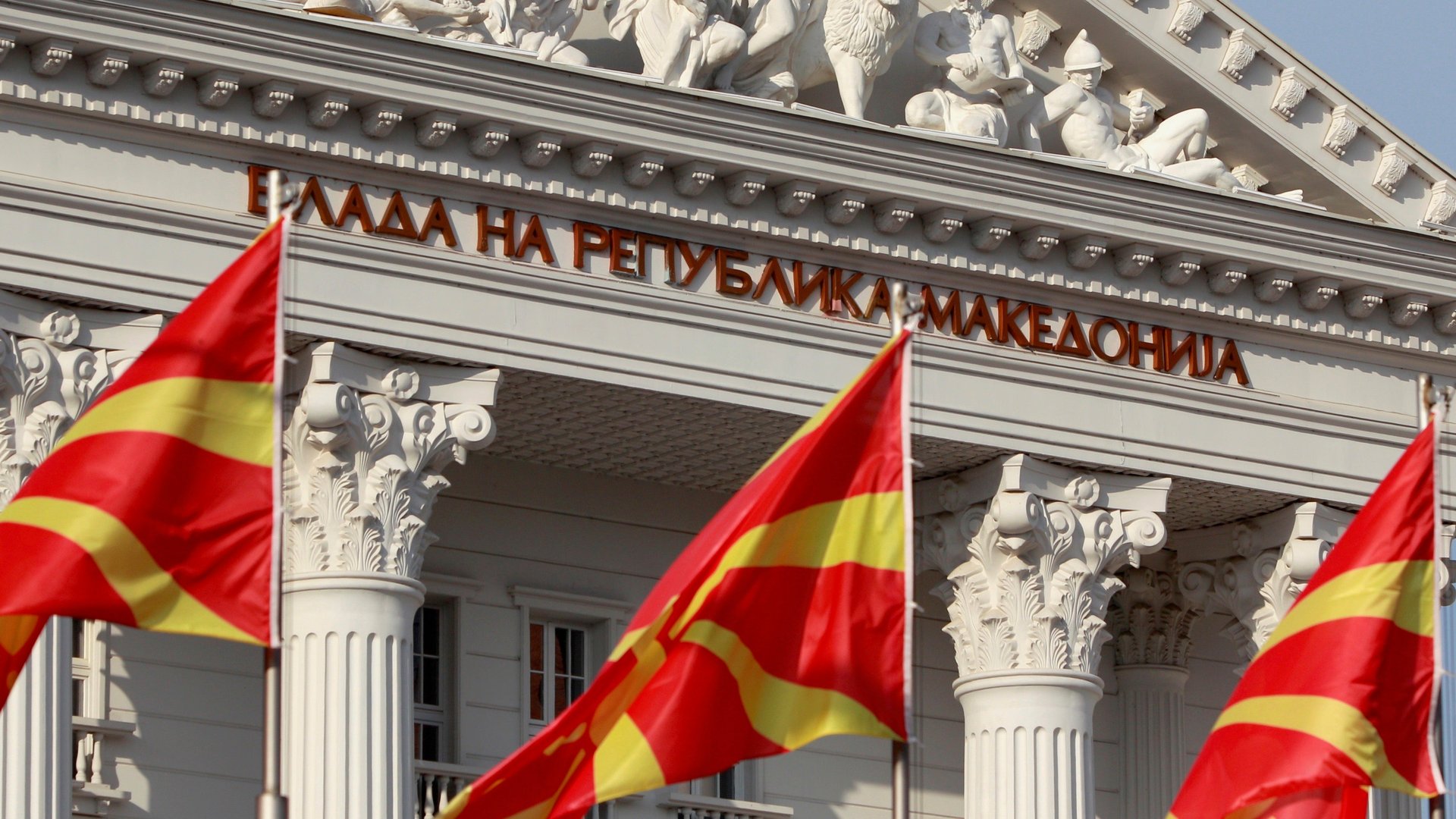Only 34% of Macedonians voted in the referendum on “Macedonia”
Skopje, FYROM


Skopje, FYROM
Akim, 25, is nearly the same age as the Former Yugoslav Republic of Macedonia (FYROM). He works in his father’s small cafe in the heart of Skopje, the nation’s capital, pulling espresso shots and scooping ice cream. But he wants more: better opportunities for work, education, and healthcare. That’s why, he says, after work he’s heading straight to his neighborhood polling station to vote in favor of changing his country’s official name.
On Sept. 30, citizens of FYROM took to the polls to vote yes or no to the question: “Do you support EU and NATO membership by accepting the deal between Macedonia and Greece?” The “deal” refers to an agreement to change FYROM’s name to simply “Republic of North Macedonia.” In exchange, Greece would drop its objections to the small country joining the EU and NATO.
Thirty-four percent of eligible voters turned up at the polls. With 80% of the ballots counted, 91.2% of votes were in favor of the name change and fewer than 6% against. Prime minister Zoran Zaev called the results “a success for democracy and for a European Macedonia.” But with most voters abstaining, it’s unclear whether the deal can actually move forward.
According to FYROM’s constitution, at least a 50% voter turnout (or 903,000 of 1.8 million eligible voters) is needed for the referendum to be legally valid. And although it was a historic day for the country, polling stations only saw trickles of people coming to cast their ballots.
Who owns the name Macedonia
For two and a half decades, Greece and FYROM have disagreed over who has the right to the name “Macedonia.” FYROM, which only gained independence as a country in 1991, is widely referred to as Macedonia. But Greece argues that Macedonia is the ages-old historical name of a northern Greek region, and that neighboring FYROM’s use of the name could pave the way for territorial disputes. Because of the naming dispute, Greece has blocked FYROM’s ascension to NATO and the EU for decades.
A high-turnout vote in favor of changing FYROM’s name could have been a political gain for both Greek PM Alexis Tsipras and his left-wing Syriza party, and for the ruling center-left party, the Social Democratic Union of Macedonia. Zaev cast his ballot this morning in the southeastern town of Strumica where he was previously mayor, telling Tanjug news agency, “I urge everyone to come out and make a serious decision for the future of our country, for the future generations.”
“This concept of names and borders belongs to the past,” Dusko Janevsky, a DJ and producer, told Quartz outside of a polling station in downtown Skopje. Along with his wife, Melina Janevsky, an artist, he voted to accept the name North Macedonia and the geopolitical perks that could come with it.
But nationalist groups have rejected any name other than Macedonia. Earlier in the week, several hundred Komiti, hardcore ‘ultra’ fans of the Macedonian soccer club FK Vardar, took over the Phillip II stadium to unfurl a big banner proclaiming “Our name is our identity.”
Macedonian president Gjorge Ivanov called for a boycott of the referendum, calling the deal a “flagrant violation of sovereignty.” VMRO DPMNE, the right-wing opposition party, has been accused of pushing for a boycott behind the scenes. Today, the group’s leader, Hristijan Mickoski announced his decision not to vote. Party spokesperson Naum Stoilkovski told media that “Mickoski is against a name change and against a deal that will humiliate Macedonia.”
A final “no” outcome could mean the breakdown of the deal with Greece, the EU and NATO. European leaders have shown active support for the name change and FYROM’s ascension to the EU, with German chancellor Angela Merkel recently visiting the country.
During a recent visit to Skopje, US defense secretary James Mattis said there was “no doubt” that Russia was funding online activity to encourage a “no” vote.
FYROM’s voter turnout problem
The government tried to entice citizens into voting. “You should be aware that today is not a day to be making ajvar,” government spokesperson Mile Bosnjakovski wrote on his public Facebook page, in reference to the red pepper paste that is the country’s national condiment.
This afternoon, ajvar was being handed out in front of the parliament building in Skopje by Prerodba va Makedonija (Renaissance, in Macedonian), a 3,000 member strong collective that is boycotting the election. “[The referendum] is a suicide of the Macedonian people,” Ana Mijakovska, a philosophy professor and a member of Prerodba told Quartz.
“We are showing our dignity and achievements as peaceful, creative people with civilized values…Our attitude is that Macedonia has to cooperate with all people and countries in the world, with the West and East. Divisions in blocks like with the EU or NATO is not good for anybody. We are not for military solutions, or to be a part of military organizations like NATO,” she continued.
If the name-deal goes south, it could be another 25 years before another deal is reached. But today, that seems to sit fine with many Macedonians.